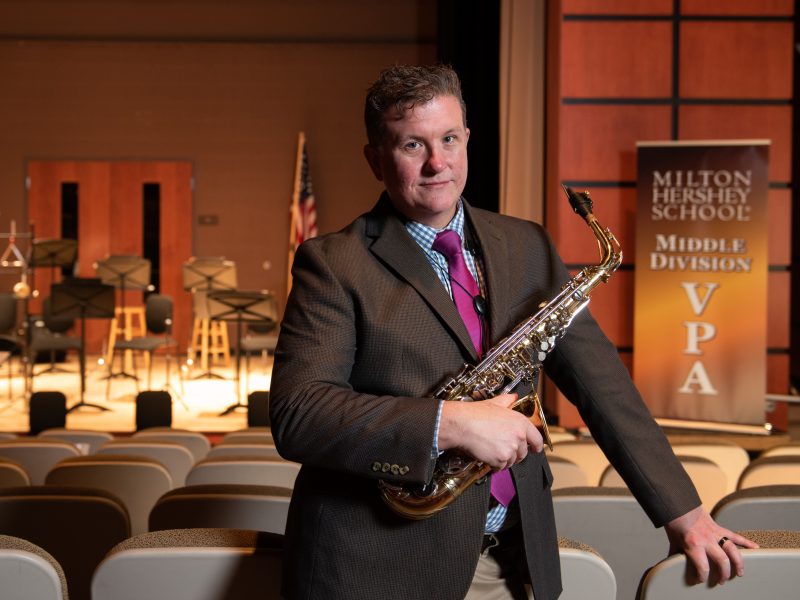Milton Hershey School Music Teacher’s Perspective on Trauma-Informed Music Education
By David Knott, MHS Visual and Performing Arts Teacher
It’s hard to really know what others are going through and how they are mentally and emotionally navigating the world around them. Especially in challenging and uncertain times, teachers are a resource of comfort and support for students through music education. They are encouragers and positive role models. Teachers don’t take a child’s behavior or words they share lightly because it provides a window into who they are.
At Milton Hershey School, the concepts of trauma-informed education and social-emotional learning are woven into the day-to-day interactions we have with students through the classroom curriculum and the home life experience.
We respect the backgrounds and individual needs of each student and seek to understand where they are coming from physically, mentally, and emotionally. We look at Adverse Childhood Experiences, or ACEs, which are potentially traumatic events that occur in childhood (0-17 years). MHS students are working to overcome the challenges poverty has created in their lives but that may not be the only experience they bring with them. Other ACE events could include experiencing violence, abuse, neglect, the death of a family member, growing up in a household with mental health problems, or instability due to parental separation or incarceration.
Trauma-informed education challenges us, as educators, to make a paradigm shift in our thinking and ask what has happened to this student, as opposed to what is “wrong” with them. As a music educator thinking through a trauma-informed lens, I can better help a student who may seem distracted during a lesson or hasn’t met their practice goal prior to class.
Music education and music therapy are not the same thing. Being fully aware that I am not a psychologist or therapist, I can still help students harness the gift of music into a passion of self-expression and personal growth. The relationships fostered in music ensembles, the challenges of learning a new composition, the thrill of performing a solo for the first time can all have a meaningful and positive impact on a student.
Music and the arts can reach our students in many different and amazing ways. As clinical psychology specialist Karen Treisman’s states, “every interaction can be an opportunity for an intervention.” We, as educators, can help children feel safe, we can build trusting relationships with our students, and provide a sense of belonging in the classroom or on the stage when we introduce music and the arts as a positive and joyful experience.

Listen to David Knott’s podcast guest appearance on Enhancing Life with Music to learn more about trauma-informed music education.
Milton Hershey School is carefully following federal and state guidelines, CDC considerations, and MHS-established health and safety protocols to keep our campus a safe, nurturing, and healthy place. Any group photos of unmasked subjects were taken prior to the face coverings mandate.

